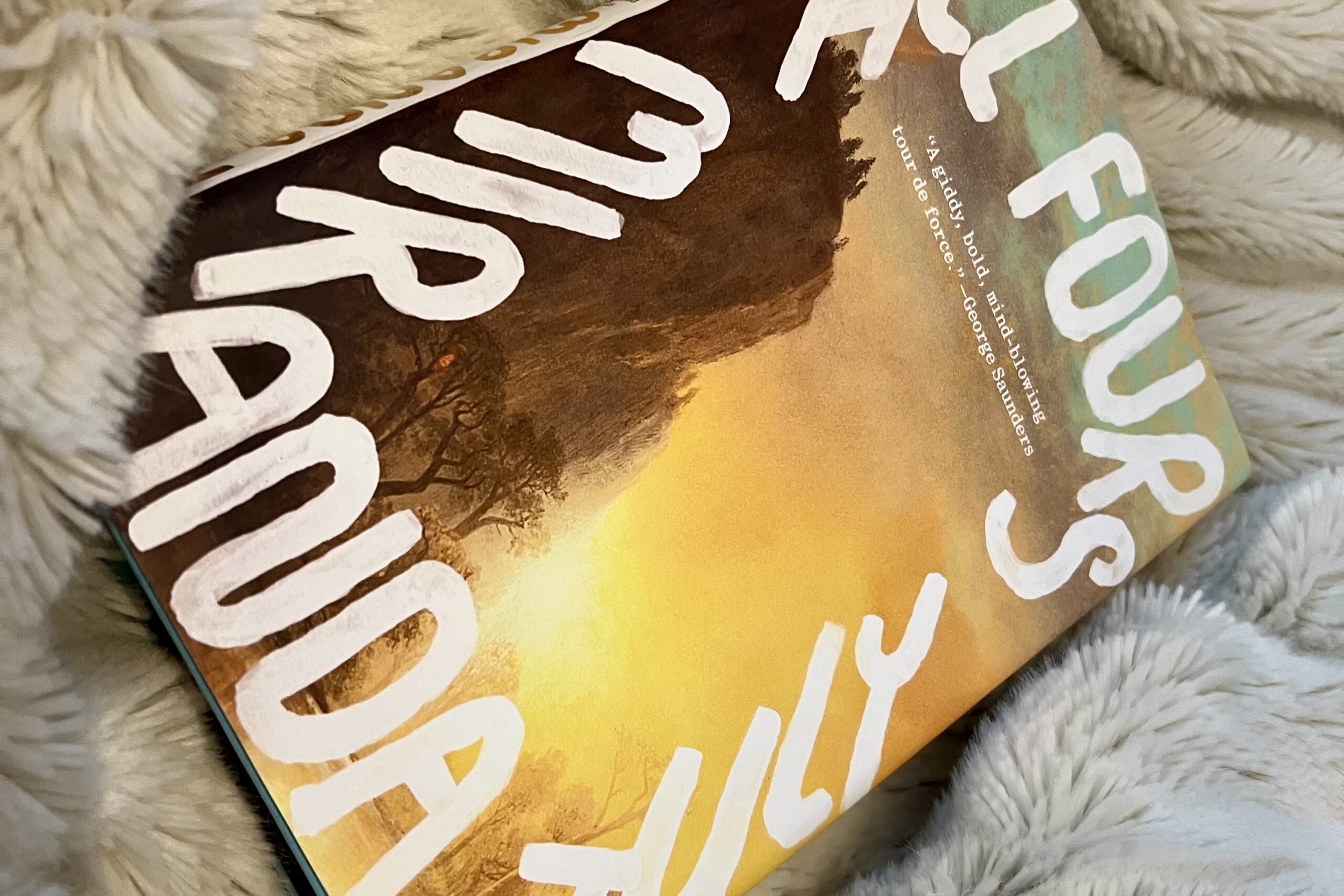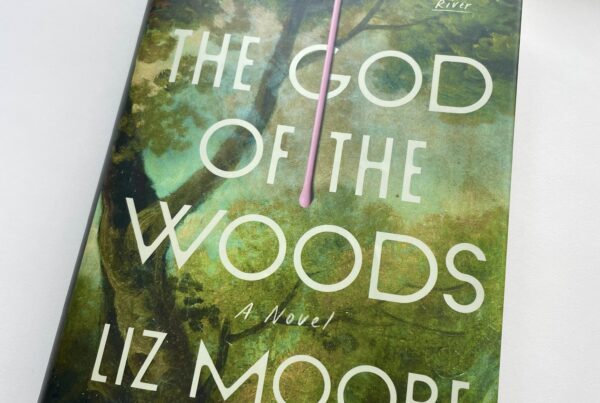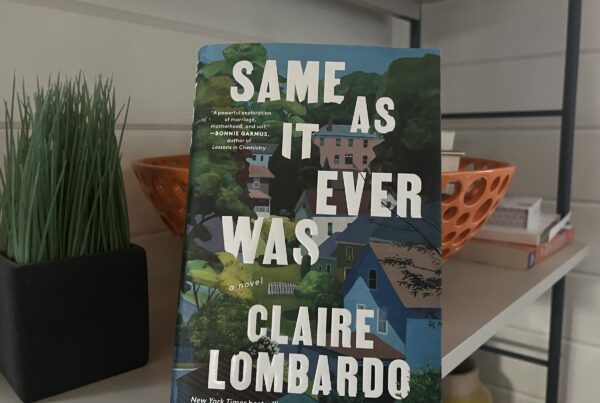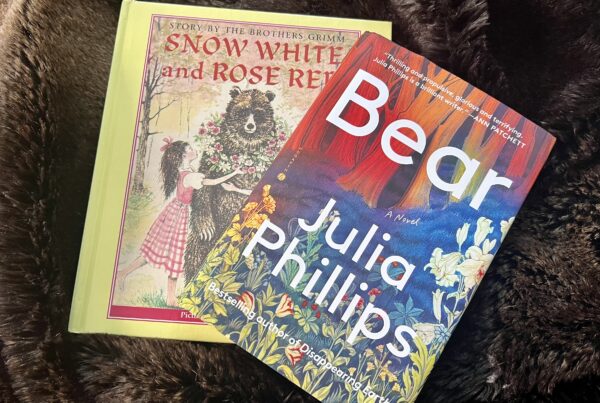In the middle of her life, the unnamed narrator of Miranda July’s new novel, All Fours, finds herself, like Dante, lost in the woods of impending menopause, a stifling marriage, unresolved birth trauma, and the grip of sexual exploration and creative energy. Okay, so maybe not exactly like Dante. As book-club books go, this one is guaranteed to provoke discussion. The narrator, (who like July is kind of famous in certain circles), plans to drive across the country in an archetypal journey to prove her adventurous spirit and to appreciate home all the more for being away from it. She comes to a halt almost immediately after prolonged eye contact with the young man cleaning her windshield at a gas station, checks into a motel not far from her house, settles in, and lies to her husband and child. She uses $20,000 (earned by selling one of her phrases for a whiskey ad) to hire the young man’s wife to decorate the motel room in the style of an opulent Parisian hotel. Sheltering womb, extravagant vagina, luxurious room of one’s own, from here, the narrator ventures forth on a different kind of quest, one that eventually embraces her self-described persona of a “kaleideoscope, each glittering piece of glass changing as I turned.”
Embarking on a passionate, non-consummated affair with the young man, reporting the truth only to her patient best friend, the narrator must confront the unprocessed ordeal of her child’s birth, her fear of an approaching hormonal plunge, her fury at becoming the thing she despises: an old woman. The narrator reckons with desire in many forms, and the symbolic choices—a young man who won’t have sex with her and an older woman who will—mirror July’s deeper themes. When the narrator returns home, she is faced with a choice: “a life spent longing vs. a life that was continually surprising.” The risks she takes in pursuit of the latter are profound, reckless, necessary. In creating a new way to be in the world, the narrator is self-centered and courageous, “imperfect” and “unashamed.”
Similar to many recent novels I’ve consumed, All Fours examines marriage to a decent man that bears reassessment; motherhood that reveals the sexism not quite so previously apparent to white, upper-middle-class women; and the powerful lure of self-expression: the need to be loud, to take up space, to create art, to be selfish, to risk it all to feel something. One of my least favorite comments in book clubs is “I just didn’t like the character.” So what? Some of the most compelling characters in literature are evil (Iago, Tom Ripley, Miss Trunchbull), pathetic (Emma Bovary, Mr Collins), self-deluded (Humbert Humbert, Daisy Buchanan), and misguided (Heathcliff, Emma, Sula). You don’t have to like characters. You don’t have to be like characters. You don’t have to get a beer with them or leave them alone with your pets. Because Miranda July’s narrator is a fictional version of herself, it’s easy to wonder about the real-life ramifications of her graphic eroticism and unflinching depiction of discontent. Of course, it is incumbent on a writer to find the humanity in her characters and to evoke the fascination and/or compassion we need to keep reading. July is a talented writer—her prose is very funny, surprising, and sexy; her ideas are layered, intriguing, resonant. It is also incumbent on writers (no matter their gender) to serve the story first. I can’t promise that everyone will love this book; in fact, I know thoughtful women who hated it. For me, July more than suceeds in making her narrator a riveting, complex character, and her book raises essential questions about aging, desire, friendship, art, and freedom that speak (loudly!) to me.




